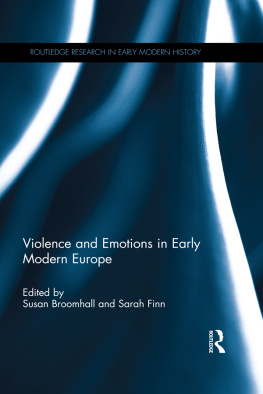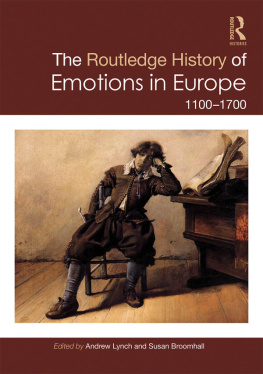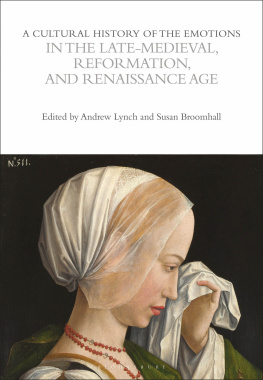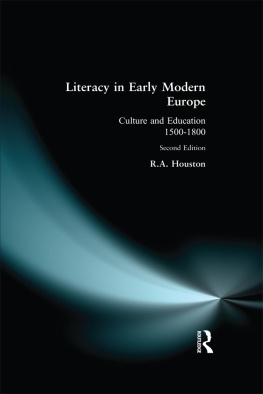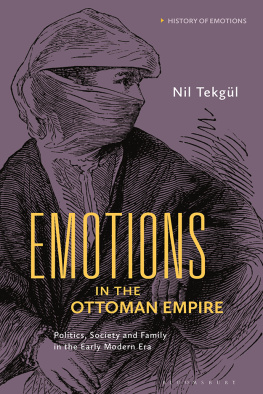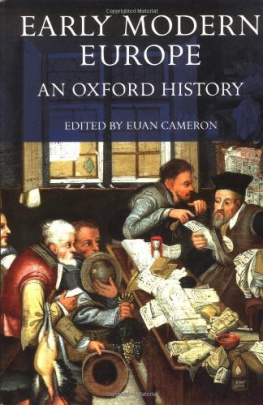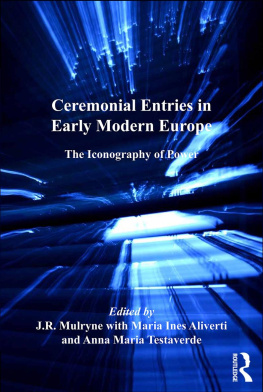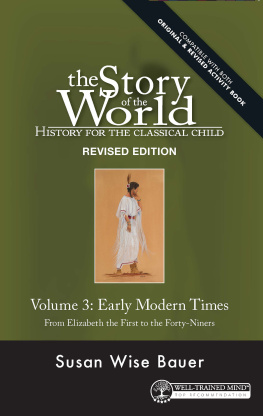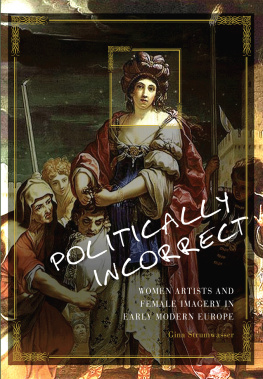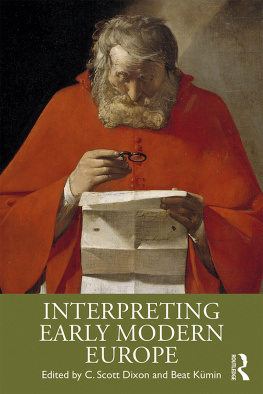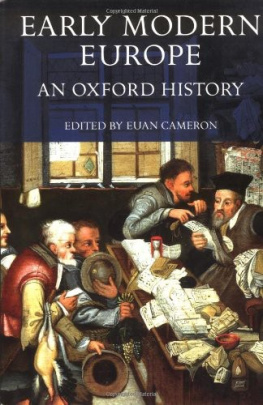Susan Broomhall - Violence and Emotions in Early Modern Europe
Here you can read online Susan Broomhall - Violence and Emotions in Early Modern Europe full text of the book (entire story) in english for free. Download pdf and epub, get meaning, cover and reviews about this ebook. year: 2016, publisher: Routledge, genre: History. Description of the work, (preface) as well as reviews are available. Best literature library LitArk.com created for fans of good reading and offers a wide selection of genres:
Romance novel
Science fiction
Adventure
Detective
Science
History
Home and family
Prose
Art
Politics
Computer
Non-fiction
Religion
Business
Children
Humor
Choose a favorite category and find really read worthwhile books. Enjoy immersion in the world of imagination, feel the emotions of the characters or learn something new for yourself, make an fascinating discovery.
- Book:Violence and Emotions in Early Modern Europe
- Author:
- Publisher:Routledge
- Genre:
- Year:2016
- Rating:5 / 5
- Favourites:Add to favourites
- Your mark:
- 100
- 1
- 2
- 3
- 4
- 5
Violence and Emotions in Early Modern Europe: summary, description and annotation
We offer to read an annotation, description, summary or preface (depends on what the author of the book "Violence and Emotions in Early Modern Europe" wrote himself). If you haven't found the necessary information about the book — write in the comments, we will try to find it.
Violence and Emotions in Early Modern Europe — read online for free the complete book (whole text) full work
Below is the text of the book, divided by pages. System saving the place of the last page read, allows you to conveniently read the book "Violence and Emotions in Early Modern Europe" online for free, without having to search again every time where you left off. Put a bookmark, and you can go to the page where you finished reading at any time.
Font size:
Interval:
Bookmark:
First published 2016
by Routledge
2 Park Square, Milton Park, Abingdon, Oxon OX14 4RN
and by Routledge
711 Third Avenue, New York, NY 10017
Routledge is an imprint of the Taylor & Francis Group, an informa business
2016 Susan Broomhall and Sarah Finn
The right of the editors to be identified as the authors of the editorial material, and of the authors for their individual chapters, has been asserted in accordance with sections 77 and 78 of the Copyright, Designs and Patents Act 1988.
All rights reserved. No part of this book may be reprinted or reproduced or utilised in any form or by any electronic, mechanical, or other means, now known or hereafter invented, including photocopying and recording, or in any information storage or retrieval system, without permission in writing from the publishers.
Trademark notice: Product or corporate names may be trademarks or registered trademarks, and are used only for identification and explanation without intent to infringe.
British Library Cataloguing-in-Publication Data
A catalogue record for this book is available from the British Library
Library of Congress Cataloging-in-Publication Data
Violence and emotions in early modern Europe/edited by Susan
Broomhall and Sarah Finn.
pages cm
Includes bibliographical references and index.
1. Violence Europe History. 2. Emotions Social aspects
Europe History. 3. Europe Social conditions. 4. Europe History
14921648. 5. Europe History 16481789. I. Broomhall, Susan.
II. Finn, Sarah, 1977
HN380.Z9V578 2015
303.6094dc23
2015002403
ISBN: 978-1-138-85402-4 (hbk)
ISBN: 978-1-315-68945-6 (ebk)
Typeset in Times New Roman
by Florence Production Ltd, Stoodleigh, Devon, UK

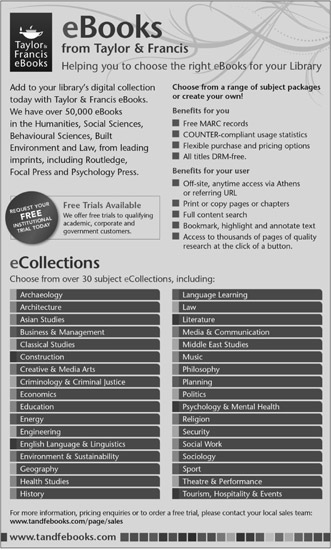
In the same series:
Penury into Plenty
Dearth and the Making of Knowledge in Early Modern England
by Ayesha Mukherjee
Violence and Emotions in Early Modern Europe
edited by Susan Broomhall and Sarah Finn
Forthcoming:
India in the Italian Renaissance
Visions of a Contemporary Pagan World 13001600
by Meera Juncu
The English Revolution and the Roots of Environmental Change
The Changing Concept of the Land in Early Modern England
by George Yerby
Honourable Intentions?
Violence and Virtue in Australian and Cape Colonies, c.1750 to 1850
edited by Penny Russell and Nigel Worden
Susan Broomhall
Elisabeth Crouzet-Pavan
Charles Zika
Lisa Beaven
Lisa Keane Elliott
Susan Broomhall
Sarah Ferber
Robert Weston
Andrea Rizzi
Denis Crouzet
Troy Heffernan
Giovanni Tarantino
Lisa Beaven is a Postdoctoral Research Fellow of the ARC Centre of Excellence for the History of Emotions at The University of Melbourne. Her research focuses on the culture of seventeenth-century Rome, particularly art patronage and collecting. She is currently working on a collaborative project funded by the Australian Research Council entitled Experiencing Space: Sensory Encounters from Baroque Rome to Neo-baroque Las Vegas . She is the author of An Ardent Patron: Cardinal Camillo Massimo and his Artistic and Antiquarian Circles in Rome (London: Paul Holberton Press, Madrid: CEEH, 2010).
Susan Broomhall is a Professor of Early Modern History at The University of Western Australia and a Fellow of the Australian Academy of the Humanities. She is the author of a series of works that explore gender and emotions in early modern France and the Low Countries, including most recently (with Jennifer Spinks) Early Modern Women in the Low Countries: Feminising Sources and Interpretations of the Past (Ashgate, 2011) and as editor, Gender and Emotions in Early Modern Europe: Destroying Order, Structuring Disorder (Ashgate, 2015) and Spaces for Feeling: Emotions and Sociabilities in Britain, 16501850 (Routledge, 2015). She was a Foundation Chief Investigator in the Australian Research Council Centre of Excellence for the History of Emotions, 11001800 and is now an Australian Research Council Future Fellow, researching emotional strategies in the correspondence of Catherine de Medici.
Denis Crouzet is a Historian of sixteenth-century France at the Universit de Paris-Sorbonne. He has published widely on violence, including Les Guerriers de Dieu. La violence au temps des troubles de religion (1990); La nuit de la Saint-Barthlemy. Un rve perdu de la Renaissance (1994); with Natalie Zemon-Davis, LHistoire tout feu tout flammes: Entretiens avec Denis Crouzet (2004); Dieu en ses royaumes: Une histoire des guerres de religion (2008) and most recently, Nostradamus (2011).
Elisabeth Crouzet-Pavan is a Historian of Renaissance Italy, particularly Venice, at the Universit de Paris-Sorbonne. She has published Sopra le acque salse. Espaces, pouvoirs et socit Venise la fin du Moyen ge (1992); Venise, une invention de la ville (XIIIeXVe sicle) (1997); Venise triomphante, les horizons dun mythe (1999); Pouvoir et dilit dans lItalie communale et seigneuriale (2003); Enfers et paradis. LItalie de Dante et de Giotto (2001); Renaissances italiennes (13801500) (2007) and Les Villes vivantes. Italie XIIIeXVe sicles (2009).
Lisa Keane Elliott is a doctoral candidate in History at The University of Western Australia. Her thesis is entitled Poverty, poor relief and the pauvres malades : a social history of the Paris Htel-Dieu, 15051598. She has previously published essays on masculinity and charity in Governing Masculinities in the Early Modern Period: Regulating Self and Others (Ashgate, 2011); Experiences of Poverty in Late Medieval and Early Modern England and France (Ashgate, 2012) and Experiences of Charity, 12501650 .
Sarah Ferber is an Associate Professor of History at the University of Wollongong. Her books include Demonic Possession and Exorcism in Early modern France (Routledge, 2004) and Bioethics in Historical Perspective (Palgrave Macmillan, 2013). She contributed several entries to Richard M. Golden (ed.), Encyclopedia of Witchcraft: The Western tradition (ABC-CLIO 2006) and an overview essay on demonic possession and witchcraft to Brian P. Levack (ed.), The Oxford Handbook of Witchcraft in Early Modern Europe and Colonial America (Oxford University Press 2013).
Sarah Finn completed her Ph.D. in 2010 at The University of Western Australia on Dante Alighieri as an enduring feature of Italian cultural memory. In 2013, she was a Research Associate in the ARC Centre of Excellence for the History of Emotions, based at The University of Western Australia, and a co-ordinator of the symposium on Violence and Emotions, which stimulated this collection.
Troy Heffernan is a doctoral candidate in History at the University of Southern Queensland, where he is studying early modern politics and ecclesiastical history.
Andrea Rizzi is Senior Cassamarca Lecturer in Italian studies at the University of Melbourne. He has published on vernacular translation at the court of Ercole I of Ferrara (see his The Historia Imperiale by Riccobaldo Ferrarese Translated by Matteo Maria Boiardo, 14711473 published by the Istituto Storico Italiano per il Medio Evo), and translation history in Renaissance Italy. Andrea has been a Deborah Loeb Brice Fellow (2011) at the Villa I Tatti Harvard University Center for Italian Renaissance Studies, Florence.
Font size:
Interval:
Bookmark:
Similar books «Violence and Emotions in Early Modern Europe»
Look at similar books to Violence and Emotions in Early Modern Europe. We have selected literature similar in name and meaning in the hope of providing readers with more options to find new, interesting, not yet read works.
Discussion, reviews of the book Violence and Emotions in Early Modern Europe and just readers' own opinions. Leave your comments, write what you think about the work, its meaning or the main characters. Specify what exactly you liked and what you didn't like, and why you think so.

